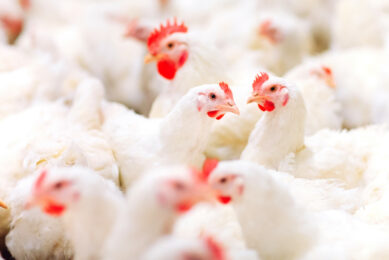Organic or Inorganic – does it really matter
Over the last two centuries, increased scientific understanding, technological innovations, and social mobility changed the face of global agriculture. This made larger scale farming more efficient although not everyone seems to have accepted the societal changes, and there were calls for a return to the less efficient preindustrial farming methods.
Over the last two centuries, increased scientific understanding, technological innovations, and social mobility changed the face of global agriculture. This made larger scale farming more efficient although not everyone seems to have accepted the societal changes, and there were calls for a return to the less efficient preindustrial farming methods.
This brings up the question whether people debating the merits of consuming "organic" rather than "inorganic" products really know what it means and what the consequences may be? The use of "all natural" methods of raising and feeding animals to produce "organic" animal products has the support of mainly upper class consumer groups and as such is readily endorsed by supermarkets. The question again is whether supermarkets are really concerned about consumers or rather their own pocket.
Genetics and chemicals
To most people there are two sides to the organic food issue; genetics and chemicals. In looking at the history of agriculture, almost everything is ‘genetically modified’. Genetic modification either takes place naturally or is done in a laboratory to speed up the process in order to address the demands that the continuous changes in social and economic climate brings upon us. Therefore the elements that compose the ‘natural’ world and the world of science are no different and all emerge from large molecules built mostly with atoms of carbon, oxygen, and hydrogen that will result in similar consequences. Many educated people in developed countries however think that only some crops and animals are organic, while all others are not. The public-at-large as well as organic food advocates have been made so afraid of the "unnaturalness" of genetically modified organisms that research toward commercially viable products is often greatly hindered.
Different meanings
How can one simple word, "organic", have such different meanings? The basis of the standards is on the process rather than the product, as organic food is defined not by any material substance in the food itself, but instead by the "holistic" methods used in organic production practises. Furthermore, the implicit, unproven assumption is that organic agriculture is better for the environment than so-called conventional farming. In opposition stand the unnatural, artificial, and synthetic; the imagined profane creations of human intellect that despoil the world. Because consumers equate organic with "natural," and "natural" with healthy and safe, the organic food industry has grown by leaps and bounds in recent years. However, organic food is just as likely to be tained by undesired pathogens, and organic vegetable protein products are just as likely to cause allergic reactions that can lead to death.
The main selling point of organic animal products is that they are grown in "all natural" conditions without "synthetic" additives, unlike conventionally farmed products. Why should synthesized products though have adverse effects if they are molecularly identical to natural products? The total number of negative health consequences to consumers from synthetic pesticides and animal feed additives is by all estimates zero. While "undesired" substances from "unnatural" sources may be found in many products, the levels at which they are present fall far below the levels known to not cause any health effects. The fact that they are found at all is only due to the latest significant advances in analytical chemistry.
Natural not always better
Animal products and other food items are often promoted as "all-natural, antibiotic free, etc.". What is so remarkable is how disconnected this world-view is from reality. Why would anyone pay premiums for "natural" when you can achieve greater, often safer perfection at lower cost with synthetic? It is good to be critical, and offer arguments from both sides of the fence, but it remains essential that emotions of non scientific communities should not solely dictate sound scientific decision making processes and developments.
In promoting organic versus inorganic products, self-interest is often hard to walk away from. Companies specializing in animal feed additives use biotechnological means to develop so-called "natural" products that can replace the "undesired" performance enhancing products that have been scrutinized over the last two decades. These companies could be seen as pro-active and have capitalized on the economic opportunity that resulted from the outcry of activists and other less informed people on the use of "undesired" performance enhancers. Again, there is nothing wrong with such innovative products and research shows that they efficiently replace conventional products, however it is mainly achieved through similar animal performance but at much higher cost.
Cost effective food
In developing countries in particular the sole use of "natural" additives and means of production will not allow the supply of cost effective food. If consumers or supermarkets are prepared to pay premiums for less effectively produced food, the choice should be given to them. However, if conventional farmers do not realise sufficient premiums they will not have any incentive to justify switching to production practises that involve the production of "all natural" animal products.
Since they have been proactive, the feed and livestock industries at least cannot be accused for not meeting the objectives of those that are resistant to "unnatural" farming practises and specific additives used in animal feeds. The choice remains available, but whether this should become general and enforced practise, especially in communities with great disparities in disposable income, can in future make us indirectly responsible for many avoidable sufferings in especially lower income communities.











